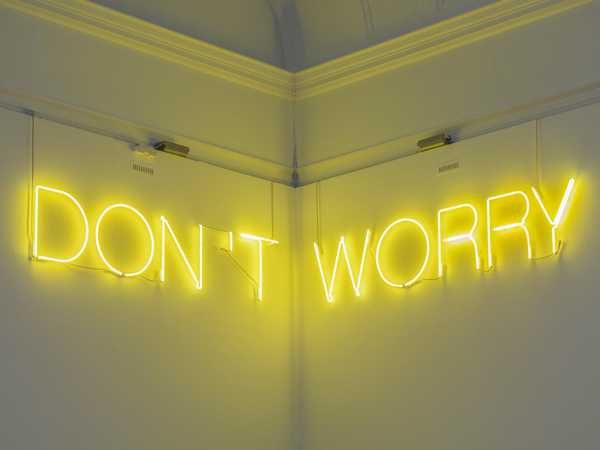Landscape for Fire
- Film & Video (Film & Video)
7 min 05
Anthony McCall
Landscape for fire is a major work by Anthony McCall. The film recounts a performance where characters in white, light up fires in a very orchestrated choreography of lights in a vast flat landscape. The performance is carefully planned – the fires are lit and geometrically aligned in a precise temporal progression. The appearance of the characters is preceded by a a horn, playing on our perception of a distant sound, strange and scary, suggesting a limit or a hazard. The crackling of matches, the ignition of gasoline, and the brisk breeze of the wind helps us to feel part of this strange celebration as we face the elements air, earth, and fire. A radical breath streams through the work. The editing of the film multiplies perspective: creation, presence, disappearance inhabit this powerful and original work.
Since the 70s, the British artist Anthony McCall has continued to push the boundaries of art. Exploring the boundaries between cinema and sculpture, he uses light and time as his signature materials. His work spans across drawing, installation, and performance, one of his preferred mediums. McCall is a key figure of British avant-garde film from the 70s. His first films retrace his outdoor performances. Experimental film in 16mm is one of his main mediums that he uses in confrontation with sculpture and performance. McCall is an indispensable reference to a younger generation of artists working in video and installation in England and abroad. Anthony McCall was born in Great Britain in 1946. He lives and works in New York.
Colors:
Related works featuring themes of: » British

© » KADIST
Keith Tyson
The work of Keith Tyson is concerned with an interest in generative systems, and embraces the complexity and interconnectedness of existence...

© » KADIST
Ryan Gander
2012Epiphany…learnt through hardship is composed of a bronze sculpture depicting the model of the little dancer of Degas, in the pose of a female nude photographed by Edward Weston (Nude, 1936) accompanied by a blue cube...

© » KADIST
Toby Ziegler
2005The Fifth Quarter might have taken its mysterious inspiration from the eponymous Stephen King story collated into the Nightmares & Dreamscapes collection...

© » KADIST
Ian Wallace
1986Wallace says of his Heroes in the Street series, “The street is the site, metaphorically as well as in actuality, of all the forces of society and economics imploded upon the individual, who, moving within the dense forest of symbols of the modern city, can achieve the status of the heroic.” The hero in Study for my Heroes in the Street (Stan) is the photoconceptual artist Stan Douglas, who is depicted here (and also included in the Kadist Collection) as an archetypal figure restlessly drifting the streets of the modern world...

© » KADIST
Charles Avery
2012Since 2005, Charles Avery has devoted his practice to the perpetual description of a fictional island...

© » KADIST
Toby Ziegler
2007Wagon Wheel is a work with a fundamental dynamism that derives both from the rotating movement of the elements suspended on poles and the kicking of the legs of the figure...

© » KADIST
Jeremy Deller
2012Beyond the White Walls , with a commentary written and spoken by Jeremy Deller, is often wryly amusing...

© » KADIST
Ian Breakwell
2008“BC/AD” (Before Cancer, After Diagnoses) is a video of photographs of the artist’s face dating from early childhood to the month before he died, accompanied by the last diary entries he wrote from April 2004 to July 2005 (entitled “50 Reasons for Getting Out of Bed”), from the period from when he lost his voice, thinking he had laryngitis, through the moment he was diagnosed with lung cancer and the subsequent treatment that was ultimately, ineffective...

© » KADIST
Chris Wiley
2012Architectural details become abstracted renderings in Chris Wiley’s inkjet prints 11 and 20 (both 2012)...

© » TATE EXHIBITIONS
Martin Creed
Martin Creed | The Dick Institute Experience the work of one of this country’s most ingenious, audacious and surprising artists at the Dick Institute ARTIST ROOMS Martin Creed presents highlights from the British artist’s thirty-year career...

© » KADIST
Martin Creed
2003This photograph of Martin Creed himself was used as the invitation card for a fundraising auction of works on paper at Christie’s South Kensington in support of Camden Arts Centre’s first year in a refurbished building in 2005...

© » KADIST
Tacita Dean
2001The photographic quality of the film Baobab is not only the result of a highly sophisticated use of black and white and light, but also of the way in which each tree is characterized as an individual, creating in the end a series of portraits...

© » KADIST
Jonathan Monk
2003Untitled (rolled up) , is an abstract portrait of Owen Monk, the artist’s father and features an aluminum ring of 56.6 cm in diameter measuring 1.77 cm in circumference, the size of his father...







